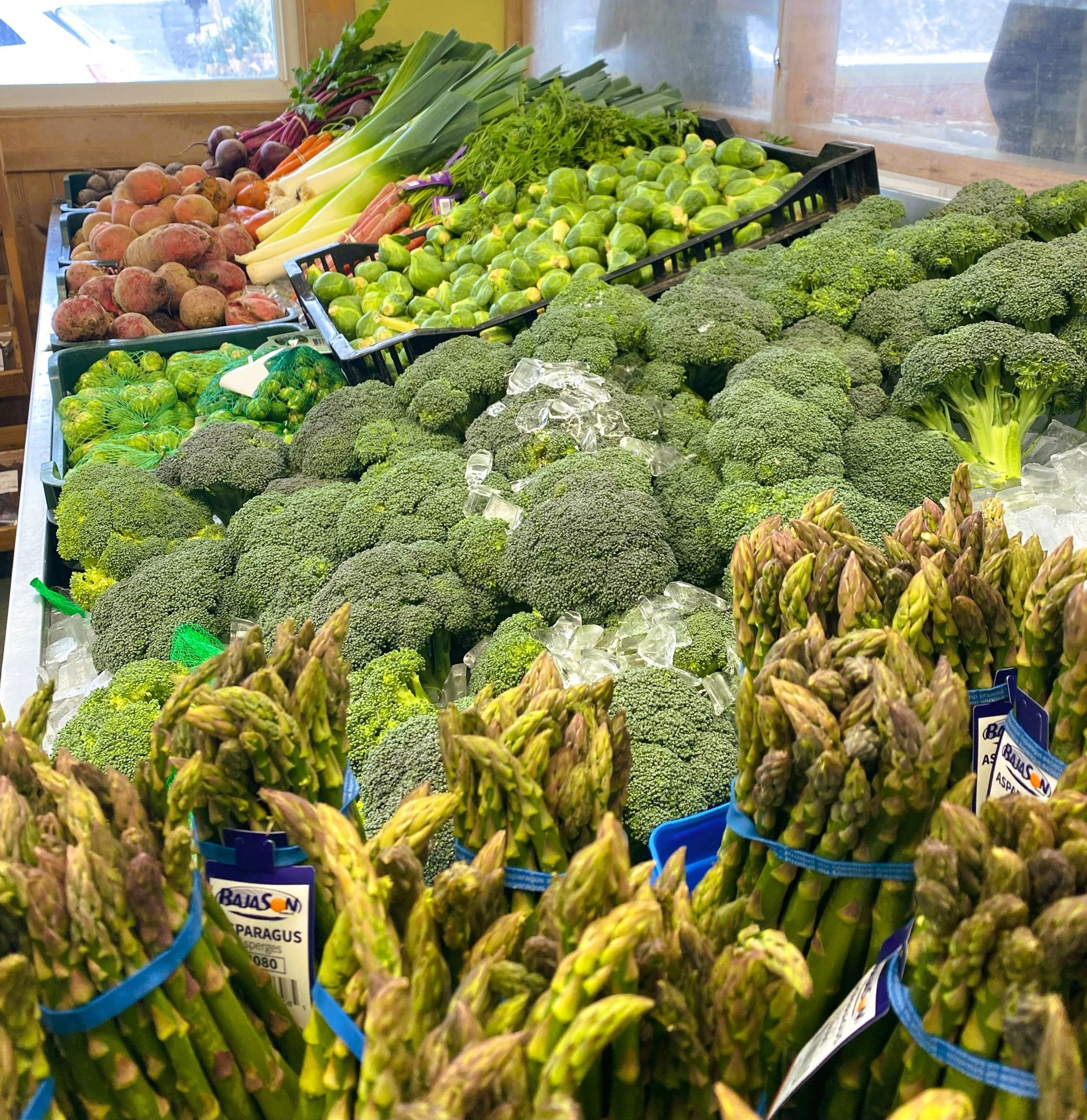
Progesterone and You: Loving Ways to Nourish Your Body from Menstruation, Pregnancy, to Menopause
mysvrnce
3/27/20256 min read
Progesterone is often lovingly referred to as the “pregnancy hormone,” but it plays a much broader and vital role in every woman’s body—no matter her stage in life. It’s a calming, stabilizing force, encouraging balance and wellness during the cyclical journey of menstruation, menopause, and pregnancy. Let’s explore the loving relationship progesterone has with each phase of a woman’s life.
While symptoms can be challenging, they offer a beautiful opportunity to tune into your body and make changes that support your health and well-being. Whether you’re menstruating, experiencing menopause, or carrying a new life, understanding how progesterone affects you can empower you to embrace your body’s wisdom and find balance through holistic practices. With a gentle combination of nourishing foods, calming herbs, and loving self-care, you can bring progesterone levels back into harmony and feel more grounded, peaceful, and vibrant.
Progesterone During Menstruation
For menstruating women, progesterone is the soothing, nurturing hormone that comes into play after ovulation. It’s essential for preparing the uterus for a potential pregnancy by thickening the uterine lining. If pregnancy doesn’t occur, progesterone levels fall, triggering the menstrual cycle. This dance of progesterone and estrogen supports overall hormonal harmony, helping to regulate periods and reduce symptoms like bloating or mood swings.
Top 5 Reasons for Progesterone Imbalance in Menstruating Women:
Stress - Chronic stress can cause the adrenal glands to take over progesterone production, leaving the ovaries with less to make.
Poor Diet - Inadequate nutrition, especially a lack of healthy fats and micronutrients, can hinder progesterone synthesis.
Excess Estrogen - Hormonal imbalances where estrogen dominates can cause “estrogen dominance,” leading to low progesterone.
Over-exercising - Intense exercise can increase cortisol levels, lowering progesterone.
PCOS (Polycystic Ovary Syndrome) - A common condition where hormonal imbalances, including progesterone, may occur.
Top 5 Symptoms of Low Progesterone During Menstruation:
Irregular Periods - If your cycles are erratic or unpredictable, low progesterone can be the culprit.
Heavy Menstrual Bleeding - Excessive bleeding or spotting between periods can signal low progesterone.
PMS Symptoms - Severe mood swings, irritability, or anxiety in the days leading up to your period may indicate an imbalance.
Insomnia - Trouble sleeping or staying asleep can often be a sign of low progesterone levels.
Fatigue - Feeling constantly tired or drained, even after adequate rest, can be related to low progesterone.
Top 5 Herbs for Progesterone Balance:
Vitex (Chaste Tree Berry) - A gentle herbal ally that supports the body’s natural progesterone production.
Red Clover - Known for its estrogenic properties, red clover can support hormonal balance and menstrual regularity.
Ashwagandha - A stress-busting herb that supports adrenal health, which in turn helps progesterone levels.
Maca Root - A grounding herb that helps balance hormones, including progesterone, and boosts energy levels.
Dong Quai - Often referred to as the “female ginseng,” it can help balance estrogen and progesterone levels.
Top 5 Foods to Support Progesterone Levels:
Pumpkin Seeds - Rich in zinc, which supports hormone production.
Avocado - Healthy fats that aid in hormone production and support progesterone levels.
Sweet Potatoes - Full of vitamin A, which is vital for hormonal health.
Leafy Greens - Packed with magnesium, which is crucial for balancing hormones.
Eggs - A wonderful source of protein and healthy fats to support the body's hormone synthesis.
Progesterone During Menopause
As women enter menopause, progesterone levels begin to naturally decline, often leaving estrogen to rise. This hormonal shift can bring about common menopausal symptoms like hot flashes, mood swings, and sleep disturbances. But while progesterone is not as plentiful during this time, its nurturing qualities still support women’s well-being by maintaining mental clarity, bone health, and restful sleep.
Top 5 Reasons for Progesterone Imbalance During Menopause:
Declining Ovarian Function - As women age, the ovaries produce less progesterone, leading to hormonal shifts.
Stress - Menopausal women may experience heightened stress, which can deplete progesterone reserves.
Environmental Toxins - Chemicals like endocrine disruptors can interfere with hormone production.
Poor Diet - Insufficient intake of hormone-boosting nutrients can contribute to imbalances.
Obesity - Excess body fat can contribute to hormonal imbalances by increasing estrogen levels, potentially lowering progesterone.
Top 5 Symptoms of Low Progesterone During Menopause:
Hot Flashes - Sudden waves of heat, especially at night, can be a sign that progesterone levels are falling.
Mood Swings - Feelings of irritability, anxiety, or even depression are common as progesterone declines.
Sleep Disturbances - Insomnia or waking up in the middle of the night, especially when combined with night sweats, can indicate low progesterone.
Memory Issues or Brain Fog - Difficulty concentrating or forgetfulness can occur when progesterone is low.
Weight Gain or Belly Fat - A shift in metabolism during menopause, coupled with lower progesterone levels, can make weight gain more common, particularly around the midsection.
Top 5 Herbs for Progesterone Balance During Menopause:
Black Cohosh - A well-known herb for supporting menopausal symptoms, including mood swings and hot flashes.
Evening Primrose Oil - A calming herb that can help soothe hot flashes and improve skin health.
Red Clover - Helps balance estrogen and progesterone levels and can ease hot flashes and night sweats.
Sage - Known for its ability to help with excessive sweating and regulate hot flashes.
Wild Yam - A natural plant source of diosgenin, a precursor to progesterone, offering gentle support for hormonal balance.
Top 5 Foods to Support Progesterone During Menopause:
Leafy Greens - Rich in magnesium, which helps the body produce progesterone and relax the nervous system.
Flax Seeds - Rich in lignans, which help balance estrogen levels and may support progesterone production.
Chia Seeds - Full of omega-3 fatty acids that help support hormonal health and reduce inflammation.
Turmeric - An anti-inflammatory powerhouse that supports overall hormone health.
Berries - High in antioxidants to reduce oxidative stress, which can affect hormonal balance.
Progesterone During Pregnancy
In pregnancy, progesterone’s role becomes even more vital, as it helps maintain a healthy uterine lining, reduces the risk of miscarriage, and supports fetal development. High levels of progesterone are necessary to prevent early labor and maintain the health of both mother and baby. It is truly the "nurturing hormone" during this sacred time, ensuring that the body is perfectly prepared for the growing life inside.
Top 5 Reasons for Progesterone Imbalance During Pregnancy:
Chronic Stress - Excessive stress can interfere with the production of progesterone, leading to difficulties in sustaining pregnancy.
Poor Diet - A lack of key nutrients can hinder the body’s ability to produce sufficient progesterone.
Over-exercising - Intense physical activity during pregnancy can deplete progesterone.
Underlying Health Conditions - Conditions like thyroid imbalances or polycystic ovary syndrome (PCOS) can impact progesterone production.
Environmental Toxins - Exposure to endocrine-disrupting chemicals can disrupt hormonal health, even during pregnancy.
Top 5 Symptoms of Low Progesterone During Pregnancy:
Spotting or Bleeding - Light spotting or heavier bleeding, especially in the first trimester, can be a sign of low progesterone.
Miscarriage Risk - Low progesterone is associated with an increased risk of miscarriage, as it is crucial in maintaining a healthy uterine lining.
Fatigue - While fatigue is common in pregnancy, extremely low energy levels might be a sign that progesterone is not at optimal levels.
Cramping - Unexplained cramping or pelvic pain in early pregnancy can sometimes indicate insufficient progesterone.
Emotional Instability - Feeling unusually anxious, depressed, or overwhelmed in early pregnancy can stem from hormonal imbalances, including low progesterone.
Top 5 Herbs for Progesterone Balance During Pregnancy:
Red Raspberry Leaf - Traditionally used to support uterine health and prepare for childbirth.
Nettle Leaf - High in nutrients like iron and calcium, supporting overall maternal health during pregnancy.
Ginger - Soothing and supportive for digestion, while helping with nausea in early pregnancy.
Holy Basil (Tulsi) - Known for its calming, adaptogenic properties, which can help reduce stress during pregnancy.
Chaste Tree (Vitex) - To be used cautiously and with professional guidance, it can help support progesterone levels in early pregnancy.
Top 5 Foods to Support Progesterone During Pregnancy:
Leafy Greens - Rich in folate and magnesium, crucial for both maternal and fetal health.
Avocados - Full of healthy fats that support progesterone production and overall wellness.
Nuts and Seeds - High in essential fatty acids, zinc, and protein to nourish the body and support hormone balance.
Whole Grains - Provide steady energy and help maintain balanced blood sugar, which supports healthy hormone levels.
Citrus Fruits - Rich in vitamin C to support the immune system, helping the body thrive during pregnancy.
Detoxification: A Loving Practice for Hormonal Health
Detoxification is an essential, loving practice for all women at every stage of life. Removing toxins from the body ensures that your hormonal system can function optimally, which is particularly important for maintaining balanced progesterone levels. Simple practices like drinking plenty of water, eating clean and nutrient-dense foods, and embracing natural methods like dry brushing or sauna sessions can help the body gently release harmful substances. Supporting the liver with herbs like milk thistle, dandelion, and burdock root is also a wonderful way to enhance detoxification and support hormone health.
Beloved WOMBAN, your body is a beautiful, intricate symphony of cycles and rhythms. Whether you're menstruating, transitioning through menopause, or nourishing life during pregnancy, your body deserves love, care, and nourishing support. By nurturing yourself with these gentle herbs, foods, and supplements, you can harmonize your hormones and feel empowered, balanced, and radiant through each life stage.
Remember, self-love and holistic health practices are the keys to feeling vibrant and alive. Sending you love on your journey to hormonal harmony.
